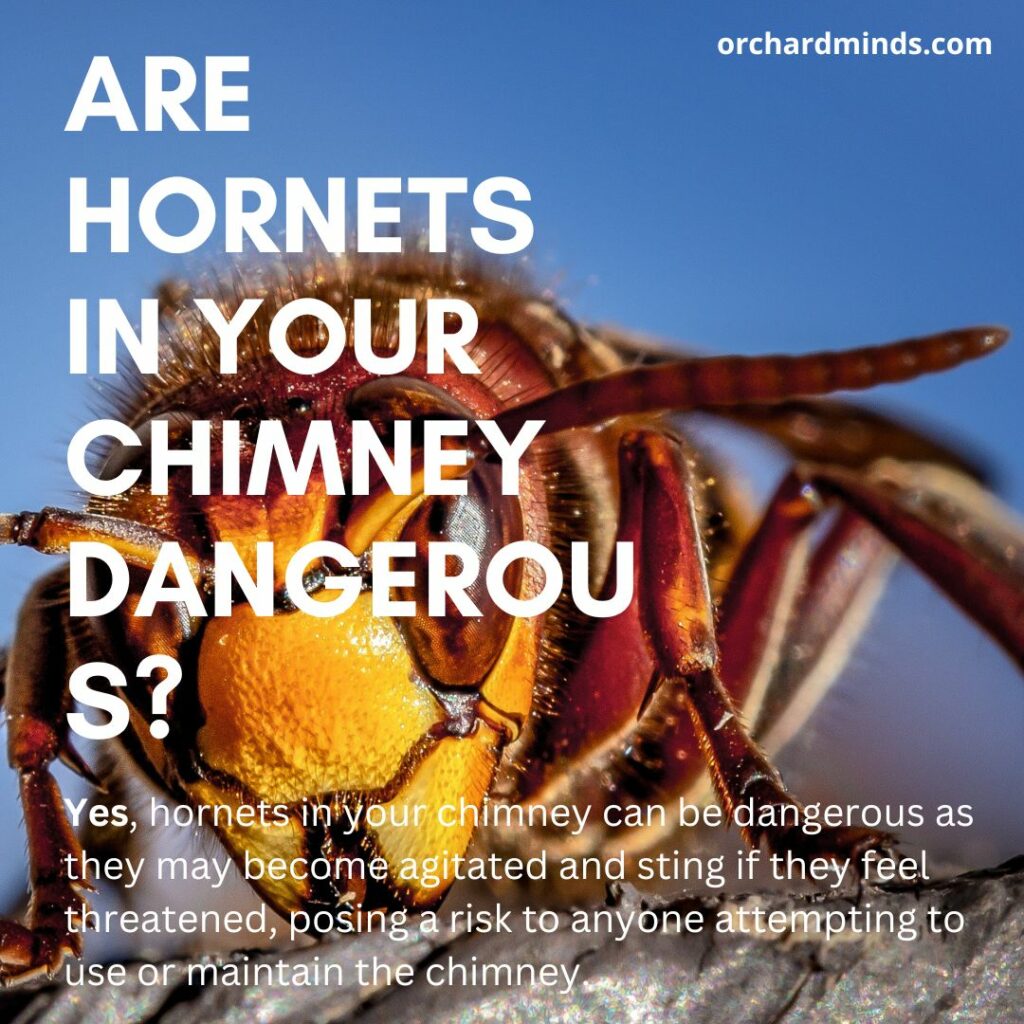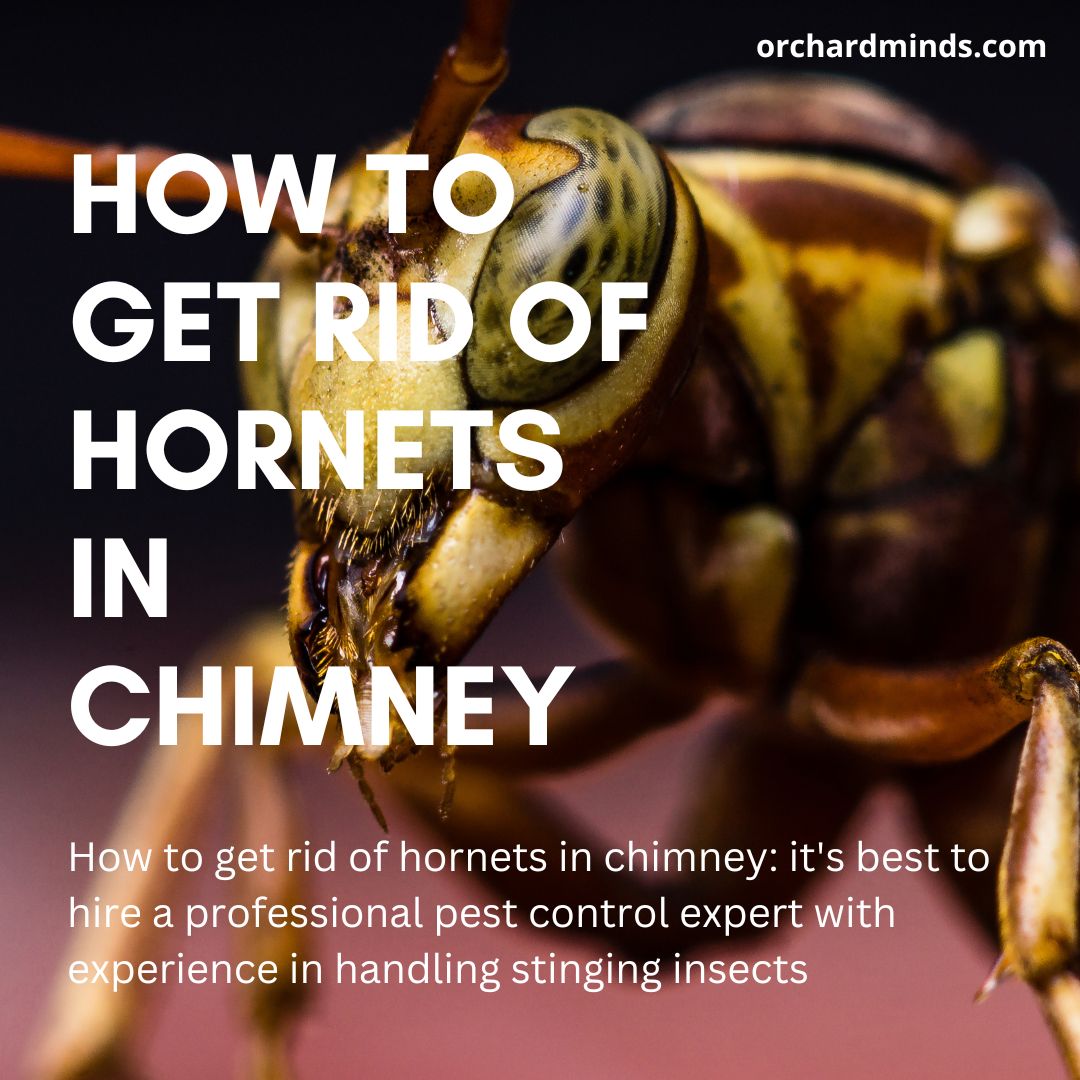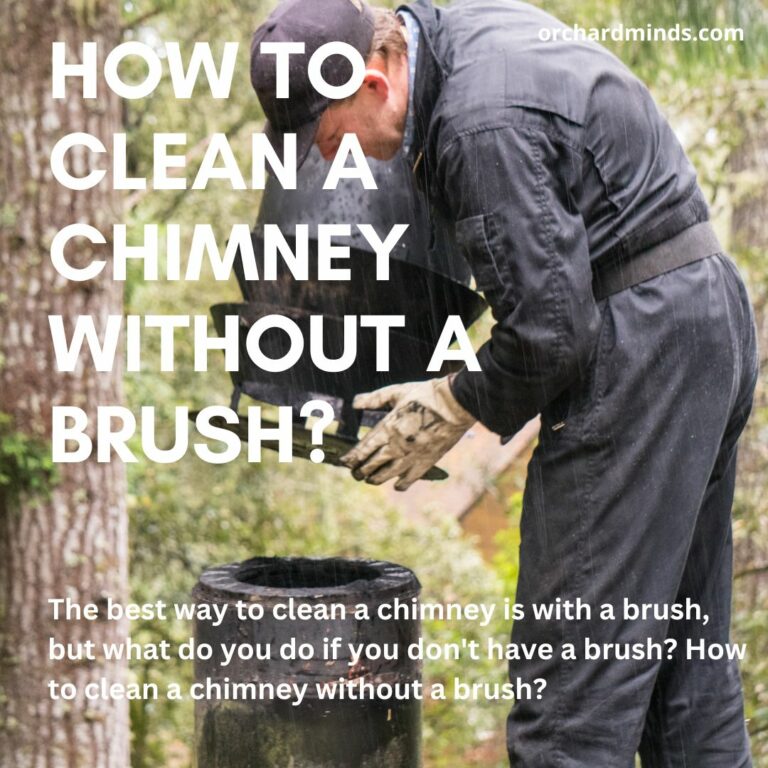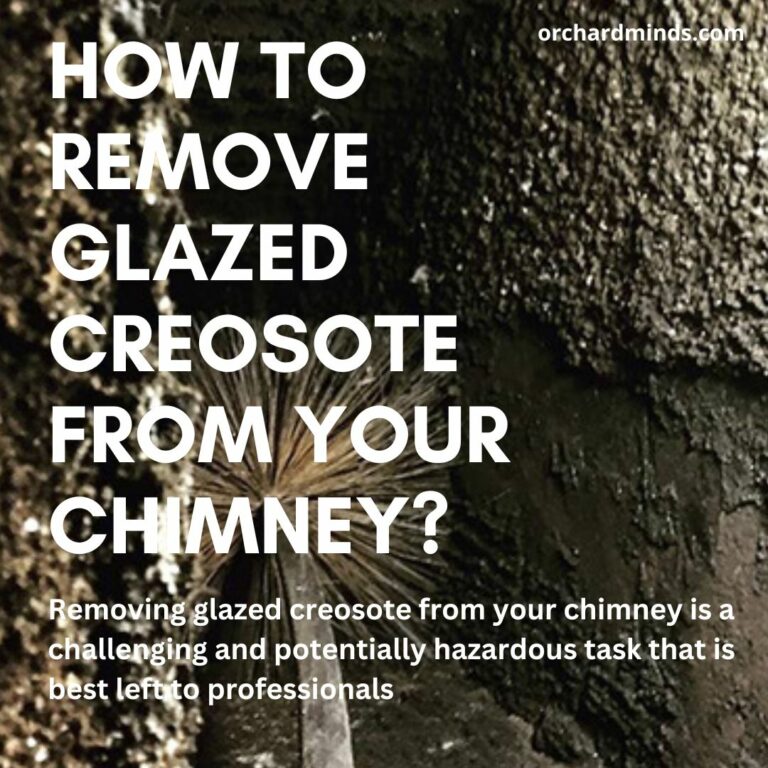How to get rid of hornets in chimney: it’s best to hire a professional pest control expert with experience in handling stinging insects. Attempting to remove them yourself can be dangerous. The expert will likely use specialized equipment, protective gear, and appropriate pesticides to eliminate the hornet nest safely. They may also take measures to prevent future infestations, such as sealing entry points in the chimney. Safety is a top priority when dealing with stinging insects like hornets, so professional intervention is strongly recommended.
Common reasons why hornets nest in your chimney
Hornets may nest in chimneys due to the sheltered and elevated space protecting them from the elements, as well as the warmth from the fireplace offering a suitable environment for their colony.
Chimneys are easy to access
Chimneys offer a relatively easy entry point for hornets, wasps, squirrels, birds and other pests. Their narrow, vertical structure provides a natural passageway into the home, making it convenient for hornets to build nests and establish colonies.
Chimneys provide shelter from the weather.
Chimneys provide a protective environment from harsh weather conditions. They offer a dry, sheltered space that shields hornets and their nests from rain, wind, and extreme temperatures, making it an attractive nesting site.
Chimneys are a food source.
Some hornet species are attracted to the abundant food supply around homes, such as nectar from flowers and sweet substances. If they find a way into your chimney, they may be drawn to any residue or odours associated with food or sweet substances.
Protection from predators
Chimneys offer protection from potential predators, including birds and other insects. The vertical structure makes it difficult for many natural enemies to access the nest, allowing hornets to feel safer and more secure.
Are hornets in your chimney dangerous?
Yes, hornets in your chimney can be dangerous as they may become agitated and sting if they feel threatened, posing a risk to anyone attempting to use or maintain the chimney.

Hornets stings
One of the primary dangers of having hornets in your chimney is the risk of getting stung. Hornets can be aggressive when they feel their nest is threatened, and their stings can be painful and, in some cases, lead to severe allergic reactions.
Allergic reactions
For individuals who are allergic to hornet stings, encountering hornets in the chimney can be life-threatening. An allergic reaction can cause symptoms like difficulty breathing, swelling, and anaphylaxis, requiring immediate medical attention.
Damage to the chimney
Hornets can cause structural damage to the chimney as they build their nests. Their nest-building activities can weaken the chimney’s integrity, potentially leading to costly repairs or even chimney collapse if left untreated.
Fire hazard
The presence of hornet nests in a chimney poses a fire hazard. If the chimney is used for a fireplace or wood-burning stove, the heat can ignite the nest or debris, leading to a chimney fire that can quickly spread to the rest of the house.
Infestation
A single hornet nest can quickly become a full-blown infestation if left unchecked. Hornets are social insects, and their colonies can overgrow, leading to an even greater risk of stings and damage to the property.
How to get rid of hornets in chimney – Step-by-step guide
Step 1: Put on your protective gear
Before attempting to remove a hornet’s nest from your chimney, it’s crucial to wear protective gear. This should include a beekeeping suit or thick, long-sleeved clothing, gloves, goggles, and a hat with a veil to shield your face. Protecting yourself from potential stings is paramount.
Step 2: Find the hornet’s nest
Carefully inspect your chimney to locate the hornet’s nest’s exact position. It’s essential to determine the nest’s size and the number of hornets present to gauge the level of danger.
Step 3: Remove the hornet’s nest
Removing the nest should be done cautiously and preferably by a professional pest control expert. Attempting this yourself can be dangerous, as hornets can become aggressive. If you still choose to proceed, wait until night when hornets are less active, and cautiously remove the nest using a long pole or a vacuum cleaner with a nozzle designed for pests. Be extremely careful.
Step 4: Spray the hornet’s nest with hornet spray
After the nest is removed or as a follow-up measure, you can use a specialized hornet spray to kill any remaining hornets. Apply the spray according to the product’s instructions and stay at a safe distance.
Step 5: Repeat
In some cases, one treatment may not be sufficient to eliminate the entire colony. Be prepared to repeat the process if necessary, but it’s highly advisable to consult with a professional pest control service to ensure the complete removal of the nest and colony.
How to prevent hornets in the chimney
Seal available cracks and openings in your chimney.
To prevent hornets from entering your chimney, seal any cracks, gaps, or openings in and around the chimney structure. Use appropriate sealants or materials to ensure a tight seal, as hornets can exploit even minor entry points.
Got some flypaper and hung a bunch around the opening.
Flypaper can help catch and control flying insects, including hornets, around the chimney opening. Hanging it strategically can reduce the likelihood of hornets entering your chimney.
Keep trees trimmed away from the house.
Overhanging branches can provide easy access for hornets to reach your chimney. Regularly trim trees and shrubs near your home to minimize the risk of hornet infestations.
Clear away any debris or leaves from around the chimney.
Remove leaves, sticks, and debris from around the chimney area regularly. These materials can provide nesting sites and attract hornets seeking shelter.
Install a chimney cap.
A chimney cap is an effective barrier against hornets’ entry. It covers the chimney opening, preventing not only hornets but also other pests and debris from entering. Make sure the cap is securely installed.
Remove any food sources that may attract hornets.
Hornets are attracted to sweet substances and food remnants. Ensure that outdoor eating areas are cleaned promptly, and garbage containers are tightly sealed to avoid attracting hornets to your property.
Schedule annual chimney inspections.
Regular chimney inspections by a qualified professional can identify potential entry points and nesting sites for hornets. Addressing these issues promptly can prevent infestations before they become problematic.
Conclusion
Preventing and dealing with hornets in your chimney requires proactive measures, including sealing openings, maintaining the area around the chimney, and considering the installation of a chimney cap. While some DIY steps can be taken, it’s crucial to prioritize safety and consult with professionals when dealing with active hornet nests to minimize risks.
FAQs about How to get rid of hornets in chimney
What is chimney flashing, and why is it important?
Chimney flashing is a metal barrier around the base of a chimney to prevent leaks. It’s essential to maintain a watertight seal between the chimney and the roof.
Are hornets in your chimney dangerous?
Yes, hornets in your chimney can be dangerous as they may sting if threatened, posing a risk to anyone near the chimney.
What are the dangers of hornet infestations in chimneys?
Dangers include hornet stings, allergic reactions, structural damage to the chimney, fire hazards, and the potential for infestations to grow.
How can I prevent hornets from nesting in my chimney?
Prevention methods include sealing cracks, using flypaper, tree trimming, debris removal, chimney cap installation, removing food sources, and scheduling annual chimney inspections.




Leave a Comment